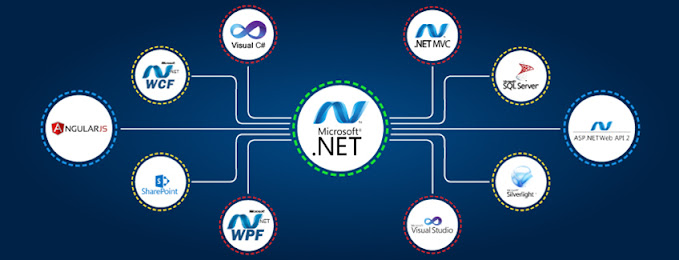How to Start a Successful Healthcare eCommerce Business in 2025?
In today’s hyper-connected world, e commerce in healthcare has evolved from a promising concept to a pivotal force reshaping the industry. As we step into 2025, the convergence of technology, patient-centric models, and regulatory adaptation has made it not only possible but profitable to launch a healthcare eCommerce business. However, success demands more than just a transactional website—it requires a strategic blend of compliance, innovation, and user trust.
Let’s unravel the blueprint for launching a thriving healthcare eCommerce business in 2025.
1. Understand the Landscape of eCommerce in Healthcare
E commerce in healthcare is not merely about selling medical supplies online. It encapsulates a vast ecosystem that includes pharmaceuticals, wellness products, telemedicine services, lab diagnostics, and even AI-based health assessments. In 2025, consumers expect convenience, speed, transparency, and most importantly—compliance with health standards.
The digital healthcare market is projected to surpass $600 billion globally, making it a lucrative yet tightly regulated domain. Entrepreneurs must prepare to navigate stringent policies, including HIPAA, GDPR, and FDA regulations, especially when dealing with prescription medications and sensitive health data.
2. Choose a Compliant and Scalable eCommerce Platform
The success of your venture hinges on the right infrastructure. Choose a platform that:
-
Supports HIPAA-compliant data storage
-
Enables real-time inventory sync
-
Has multi-location logistics capabilities
-
Integrates with CRM in healthcare systems
Platforms like Magento, Shopify Plus (with customization), or Salesforce Commerce Cloud offer robust scalability and built-in tools for compliance. You need a system that automates workflows, from prescriptions to dispatch, ensuring you stay efficient and lawful.
3. Leverage CRM in Healthcare for Personalization and Retention
One of the game-changers in 2025 is CRM in healthcare. Modern healthcare CRMs go beyond contact management. They create 360-degree patient profiles, track engagement history, automate appointment reminders, and power personalized product recommendations.
A sophisticated healthcare CRM enables:
-
Tailored marketing campaigns based on user behavior
-
Seamless integration with EMRs and telehealth platforms
-
Improved patient-provider communication
Think of your CRM as the nervous system of your eCommerce engine—without it, the business cannot function cohesively.
4. Build Trust Through Transparency and Accreditation
Trust is the lifeblood of healthcare. Unlike typical retail, e commerce in healthcare requires impeccable attention to credibility.
Here’s how to establish trust fast:
-
Display certifications such as NABP, LegitScript, and HIPAA compliance
-
Offer detailed product descriptions backed by science
-
Provide easy access to verified pharmacists or health consultants
-
Include customer testimonials and third-party reviews
Incorporate secure payment gateways and clearly defined data privacy policies. In 2025, consumers are savvier than ever—they expect security, not just convenience.
5. Optimize for Mobile and Voice Search
Over 70% of healthcare consumers in 2025 will access eCommerce platforms via mobile devices or voice-enabled assistants. Your website must be:
-
Responsive and ADA-compliant
-
Voice search optimized using structured data
-
Capable of fast, intuitive checkout flows
Including AI-driven chatbots and virtual assistants can reduce cart abandonment and boost engagement. For instance, voice prompts like “Refill my prescription” or “Book a telehealth consult” must be built into your mobile UX.
6. Establish a Bulletproof Logistics and Fulfillment Strategy
Timely delivery of medical products is not optional—it’s critical. You must partner with healthcare-compliant third-party logistics (3PL) services that offer:
-
Cold chain storage (for vaccines, insulin, etc.)
-
Real-time tracking
-
Reverse logistics for prescription returns
-
Automated resupply subscriptions
Incorporating AI into your logistics can help predict demand spikes and optimize delivery routes, which enhances operational efficiency and customer satisfaction.
7. Embrace Content Marketing and SEO for Authority Building
Your brand must be more than a vendor—it should be a trusted health advisor. Content marketing, powered by healthcare SEO, will amplify your digital footprint.
Focus on:
-
Educational blogs about medications, chronic care, and digital wellness
-
FAQ pages answering regulatory and product-related concerns
-
Video explainers about product usage and safety
Make sure to organically integrate e commerce in healthcare and CRM in healthcare throughout your content to improve visibility.
8. Track, Adapt, and Innovate
Lastly, the digital healthcare landscape is in perpetual flux. Use analytics to track:
-
Conversion rates
-
Drop-off points in the purchase journey
-
Prescription refill cycles
-
Patient feedback scores
AI-powered dashboards and predictive analytics will allow you to pivot strategies in real time. The mantra for 2025 is: “Innovate fast or fade out.”
Final Thoughts
Launching a successful e commerce in healthcare business in 2025 is no small feat—it requires more than entrepreneurial spirit. You need technological agility, regulatory vigilance, and empathy-driven marketing. When fused with a robust CRM in healthcare, these components can transform your venture from a startup to a healthcare powerhouse.
Whether you're aiming to sell durable medical equipment or launch a full-service digital pharmacy, the roadmap above will set you on a path to long-term success—professionally, ethically, and lucratively.
.png)


Comments
Post a Comment